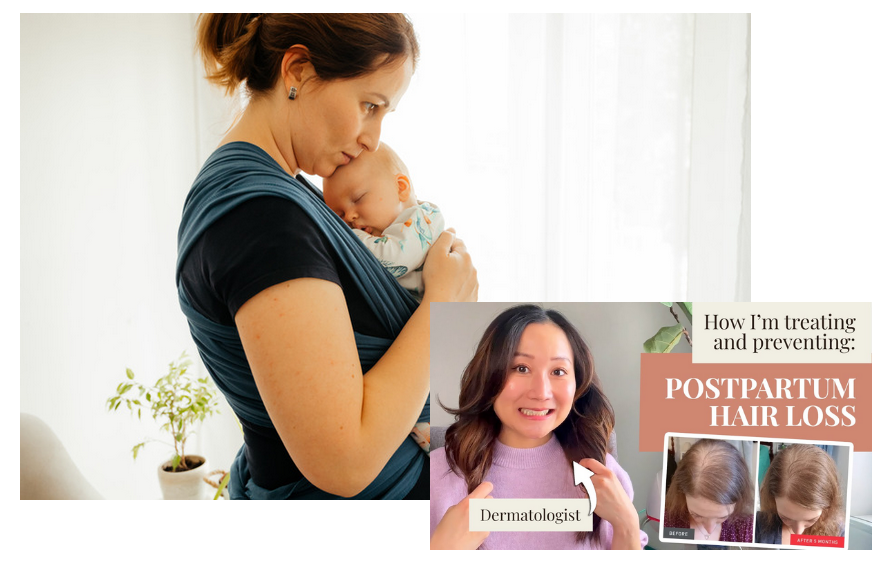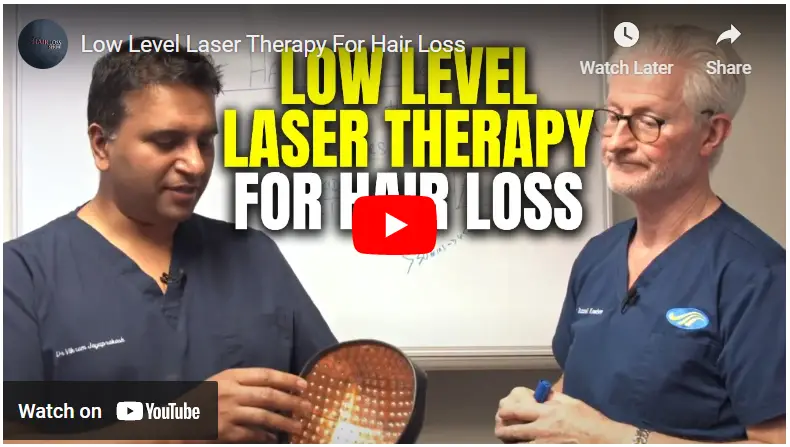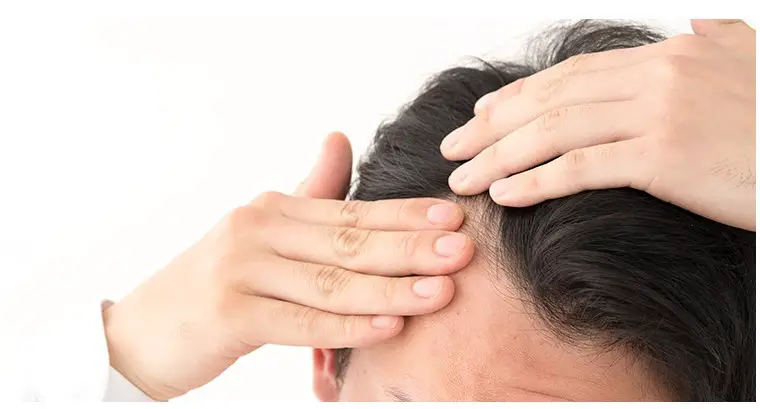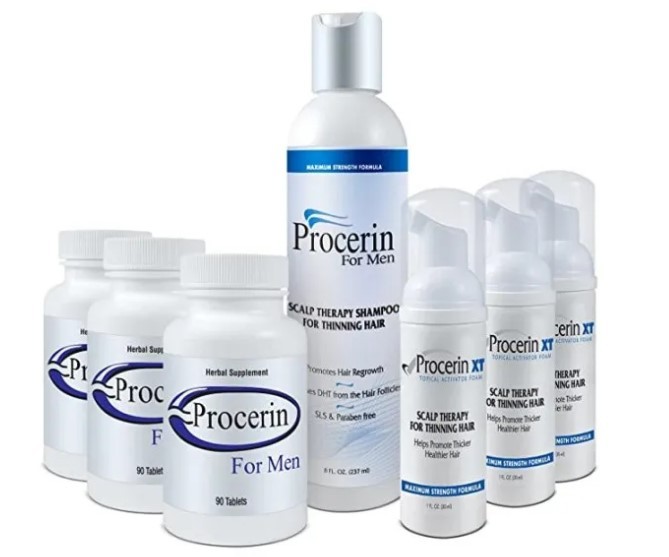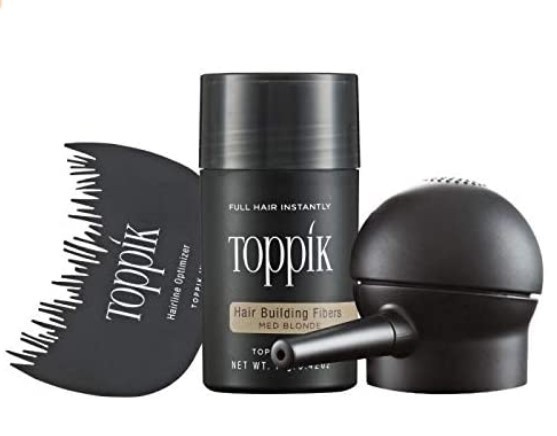If you’re searching for the best serum for postpartum hair loss, you’ve come to the right place. In this comprehensive guide, we’ll explore the causes of postpartum hair loss, discuss various solutions, and review top serums that can help manage and reverse this common condition.
Experiencing hair loss after pregnancy, also known as postpartum hair loss, can be a distressing experience for many new mothers. This condition is quite common and is typically temporary, but it can still cause a lot of stress and anxiety. The good news is that there are effective treatments available to help manage and even reverse this type of hair loss. One such treatment is the use of specially formulated Nutrafol Postpartum serums.
In this article, we will delve into the world of serums for postpartum hair loss, focusing on the best ones available in the market today. We’ll explore their benefits, how they work, and why they are a great option for dealing with postpartum hair loss. We’ll also share personal anecdotes from women who have successfully used these serums to regain their hair’s health and vitality.
One of the serums we’ll be discussing in detail is the Nutrafol Postpartum Hair Growth Supplements and Hair Serum, a product that has garnered positive reviews for its effectiveness in treating postpartum hair loss. We’ll also look at other popular products like the Vegamour Postpartum Hair Loss Serum and discuss the role of vitamins and supplements in managing this condition.
So, whether you’re currently dealing with postpartum hair loss or are simply looking for ways to maintain your hair’s health during this transitional period, this article is for you. Let’s dive in and explore the best solutions for postpartum hair loss.
Key Takeaways
In this comprehensive guide, we’ve explored the topic of postpartum hair loss and the various treatments available to manage and reverse this condition. Here are the key takeaways from our discussion:
- Understanding Postpartum Hair Loss: Postpartum hair loss, also known as telogen effluvium, is a common condition that affects many women after childbirth. It’s primarily caused by hormonal changes that occur after pregnancy.
- Exploring Solutions: There are several products and treatments available to manage postpartum hair loss, including serums, shampoos, vitamins, and supplements. These products are designed to support hair health and promote regrowth.
- Product Reviews: We’ve reviewed some of the top serums available in the market, including the OGX Nourishing Coconut Milk Anti-Breakage Serum, Act+Acre’s Cold Processed Stem Cell Serum, Nutrafol Postpartum Hair Growth Supplements and Hair Serum, Vegamour GRO Hair Serum for Thinning Hair, and Anya Postpartum Hair Loss Serum.
- FAQs: We’ve answered some of the most frequently asked questions about postpartum hair loss and the use of serums to treat this condition.
- Conclusion: Postpartum hair loss is a temporary condition that typically resolves on its own within a year. However, there are effective treatments available that can help manage this condition and promote healthier hair growth.
For more information on postpartum hair loss and other hair-related issues, check out our articles on Vitamins for Postpartum Hair Loss and DHT Blockers for Women. Stay tuned for more articles on hair health and wellness!
Understanding Postpartum Hair Loss
Postpartum hair loss, also known as telogen effluvium, is a common condition that affects many women after childbirth. It’s characterized by excessive hair shedding, usually occurring around three months after delivery. This can be quite alarming, especially for new mothers who are already dealing with significant physical and emotional changes.
What Causes Postpartum Hair Loss?
During pregnancy, elevated levels of hormones keep your hair in the growth, or anagen, phase. But after you give birth, your hormones return to their pre-pregnancy levels, causing your hair to enter the shedding, or telogen, phase. This sudden shift can cause you to lose more hair than usual.
Several factors can contribute to postpartum hair loss, including:
- Hormonal changes: The drastic drop in estrogen levels after childbirth can cause hair to shift from the growth phase to the shedding phase.
- Stress: The physical and emotional stress of childbirth and new motherhood can contribute to hair loss.
- Nutritional deficiencies: Pregnancy and breastfeeding can deplete your body of essential nutrients, which can affect hair health.
For a more in-depth understanding of the causes of postpartum hair loss, you can check out our article on Why Do Men Go Bald and Women Don’t?
Tips for Dealing with Postpartum Hair Loss
While postpartum hair loss is typically temporary and resolves on its own within a year, there are steps you can take to manage the condition and promote healthier hair growth. Here are some tips:
- Maintain a balanced diet: Eating a diet rich in vitamins and minerals can help support hair health. Consider foods high in vitamins A, C, D, and E, as well as B-vitamins like Biotin.
- Stay hydrated: Water helps to keep your hair hydrated and healthy. Aim to drink at least eight glasses of water a day.
- Be gentle with your hair: Avoid hairstyles that pull on your hair, and try to limit the use of heat styling tools.
- Consider hair growth supplements: Supplements like Nutrafol and Viviscal can help support hair growth and health.
Remember, it’s normal to lose more hair than usual after giving birth. But if you’re concerned about excessive hair loss, it’s always a good idea to consult with a healthcare provider or a dermatologist. They can provide personalized advice and treatment options based on your specific needs and circumstances.
In the next section, we’ll explore the role of serums in treating postpartum hair loss and review some of the best products available in the market. So, stay tuned!
Exploring Solutions: Serums, Shampoos, and More
When it comes to managing postpartum hair loss, there are several products and treatments available that can help. These include serums, shampoos, vitamins, and supplements, all designed to support hair health and promote regrowth. Let’s take a closer look at these solutions.
The Role of Serums in Treating Postpartum Hair Loss
Hair serums are topical treatments that are applied directly to the scalp and hair. They are typically formulated with active ingredients that can help to stimulate hair growth, strengthen hair follicles, and reduce hair loss.
Serums can be particularly effective in treating postpartum hair loss as they can deliver targeted treatment to the areas where it’s needed most. They can also provide nourishment and hydration to the scalp, creating an optimal environment for hair growth.
One such serum that has been garnering positive reviews is the Vegamour Postpartum Hair Loss Serum. This product is designed to address the root causes of hair loss and promote healthier, thicker hair. It’s formulated with natural ingredients that are known for their hair growth-promoting properties, making it a safe and effective option for new mothers dealing with postpartum hair loss.
Best Shampoo for Postpartum Hair Loss
In addition to serums, using the right shampoo can also make a significant difference in managing postpartum hair loss. Look for shampoos that are free from harsh chemicals and are formulated with ingredients known to support hair health and growth.
For instance, shampoos containing ingredients like biotin, keratin, and natural oils can help to strengthen hair and reduce breakage. They can also help to nourish the scalp and create an optimal environment for hair growth.
The Importance of Vitamins and Supplements for Postpartum Hair Loss
Vitamins and supplements can play a crucial role in supporting hair health and promoting growth. Essential nutrients like vitamin A, B-vitamins (including biotin), vitamin C, vitamin D, iron, and zinc are all important for hair health.
Postpartum women may particularly benefit from supplements designed to support hair growth, such as NourishVita. These products are typically formulated with a blend of vitamins, minerals, and other nutrients known to support hair health and growth.
Remember, while these products can help, they are not a substitute for a balanced diet and good hair care practices. Always consult with a healthcare provider before starting any new supplement regimen.
In the next section, we’ll dive deeper into the world of hair growth serums and review some of the top products available in the market. So, stay tuned and continue reading on our Regrowth Serum category page.
Product Reviews: Top Serums for Postpartum Hair Loss
When it comes to treating postpartum hair loss, finding the right product can make all the difference. In this section, we’ll review some of the top serums available in the market, focusing on their key features, benefits, and how they can help manage and reverse hair loss after pregnancy.
OGX Nourishing Coconut Milk Anti-Breakage Serum
This serum from OGX is a popular choice for many women dealing with postpartum hair loss. It’s formulated with nourishing coconut milk and wholesome egg white proteins, which help to strengthen hair and reduce breakage. Users have reported noticeable improvements in hair thickness and health after regular use.
Act+Acre’s Cold Processed Stem Cell Serum
Act+Acre’s serum is a high-end product that uses plant-based stem cells to stimulate hair growth. It’s designed to nourish the scalp and create an optimal environment for hair growth. While it’s on the pricier side, many users have found it to be effective in reducing hair loss and promoting regrowth.
Nutrafol Postpartum Hair Growth Supplements and Hair Serum
Nutrafol offers a two-pronged approach to postpartum hair loss with their hair growth supplements and serum. The supplements are packed with vitamins, minerals, and other nutrients known to support hair health, while the serum provides targeted treatment to the scalp. This combination can be particularly effective in managing postpartum hair loss.
Vegamour GRO Hair Serum for Thinning Hair
The Vegamour GRO Hair Serum is another great option for postpartum hair loss. It’s formulated with natural ingredients that are known to promote hair growth and reduce hair loss. Users have reported noticeable improvements in hair thickness and volume after regular use.
Anya Postpartum Hair Loss Serum
The Anya Postpartum Hair Loss Serum is a lesser-known product that has been garnering positive reviews for its effectiveness in treating postpartum hair loss. It’s formulated with natural ingredients and is free from harsh chemicals, making it a safe choice for new mothers.
In conclusion, while postpartum hair loss can be distressing, there are effective treatments available. The key is to find a product that works for you and to use it consistently. Remember, it’s always a good idea to consult with a healthcare provider before starting any new treatment regimen.
For more information on postpartum hair loss and other hair-related issues, check out our articles on Postpartum Dandruff and Iron Deficiency Hair Loss & Early Stage Female Pattern Baldness. Stay tuned for our next section where we’ll answer some frequently asked questions about postpartum hair loss and serums.
FAQs about Serum for Postpartum Hair Loss:
In this section, we’ll answer some of the most frequently asked questions about postpartum hair loss and the use of serums to treat this condition. These questions are based on common queries and concerns that new mothers often have.
Q1: Why does hair loss occur after pregnancy?
Hair loss after pregnancy, also known as postpartum hair loss, is primarily due to hormonal changes. During pregnancy, elevated levels of hormones keep your hair in the growth phase. But after childbirth, these hormone levels drop, causing your hair to enter the shedding phase. This sudden shift can lead to more hair loss than usual.
Q2: How long does postpartum hair loss last?
Postpartum hair loss usually begins around three months after childbirth and can continue for up to a year. However, most women notice that their hair returns to its pre-pregnancy thickness within 6 to 12 months.
Q3: How can serums help with postpartum hair loss?
Hair serums are topical treatments that can help to stimulate hair growth, strengthen hair follicles, and reduce hair loss. They are typically formulated with active ingredients that nourish the scalp and create an optimal environment for hair growth. For more information on how serums can help with postpartum hair loss, check out our article on Regrowth Serums.
Q4: Are there any side effects to using hair serums?
Most hair serums are safe to use and do not have any major side effects. However, some people may experience scalp irritation or allergic reactions to certain ingredients. It’s always a good idea to do a patch test before using a new product.
Q5: Can I prevent postpartum hair loss?
While it’s not possible to completely prevent postpartum hair loss, there are steps you can take to manage the condition and promote healthier hair growth. These include maintaining a balanced diet, staying hydrated, being gentle with your hair, and using products like serums and supplements that support hair health.
Remember, postpartum hair loss is a temporary condition and your hair should return to its normal growth cycle within a year. If you’re concerned about excessive hair loss, it’s always a good idea to consult with a healthcare provider.
For more information on postpartum hair loss and other hair-related issues, check out our articles on Female Pattern Baldness and Late Stage Traction Alopecia.
Stay tuned for our conclusion where we’ll wrap up everything we’ve discussed in this article.
Conclusion
Postpartum hair loss is a common condition that many new mothers experience. While it can be distressing, it’s important to remember that it’s temporary and typically resolves on its own within a year. However, there are effective treatments available that can help manage this condition and promote healthier hair growth.
In this article, we’ve explored various solutions for postpartum hair loss, including serums, shampoos, vitamins, and supplements. We’ve also reviewed some of the top serums available in the market, such as the OGX Nourishing Coconut Milk Anti-Breakage Serum, Act+Acre’s Cold Processed Stem Cell Serum, Nutrafol Postpartum Hair Growth Supplements and Hair Serum, Vegamour GRO Hair Serum for Thinning Hair, and Anya Postpartum Hair Loss Serum.
One of the key takeaways from our discussion is the importance of finding a product that works for you and using it consistently. Whether it’s a serum, a shampoo, or a supplement, the key is to choose a product that is formulated with ingredients known to support hair health and growth.
Remember, while these products can help, they are not a substitute for a balanced diet and good hair care practices. Always consult with a healthcare provider before starting any new treatment regimen.
Finally, we hope that this article has provided you with valuable information and insights on managing postpartum hair loss. If you’re currently dealing with this condition, remember that you’re not alone and that there are resources and treatments available to help you.
For more information on postpartum hair loss and other hair-related issues, check out our articles on Telogen Effluvium Diet and Hair Toppers for Thinning Crown.
Remember, your journey to hair recovery is a marathon, not a sprint. Be patient with yourself and your hair, and in time, you’ll see the results you’re hoping for.
Thank you for reading, and stay tuned for more articles on hair loss in many new mothers, health and wellness!
- AI Powered Bald Filter Online 2024: See Yourself with No Hair! - January 19, 2024
- Harklinikken Bad Reviews 2024: Analyzing Negative Feedbacks - January 18, 2024
- How to Get the Alex Eubank Hair | Step-By-Step Tutorial 2024 - January 18, 2024

